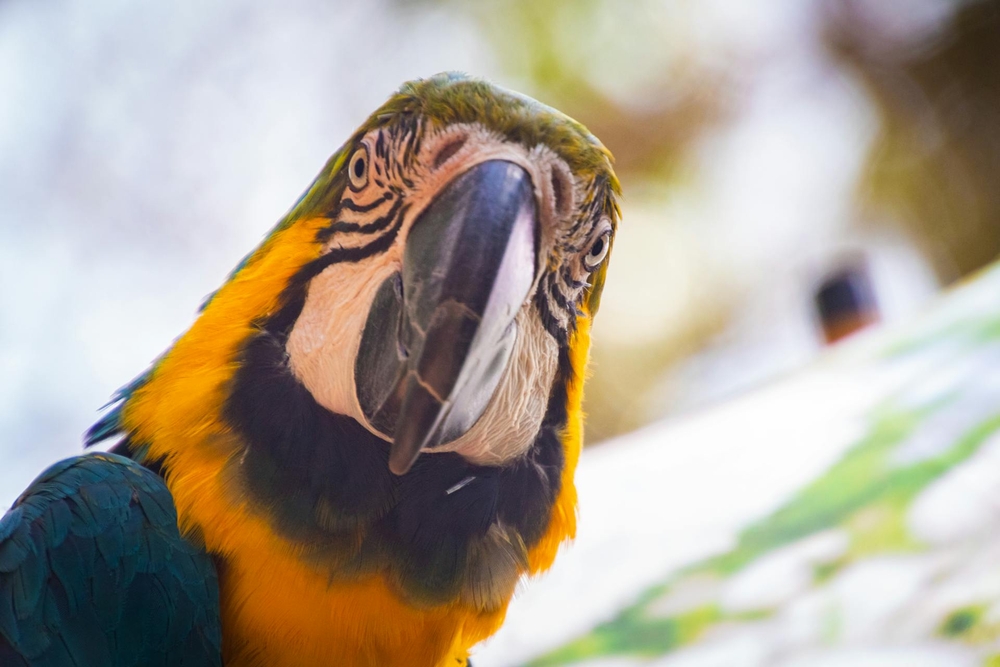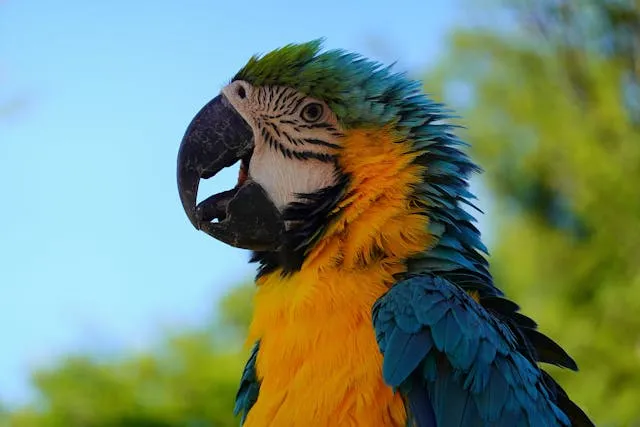Published
- 6 min read
My parrot talks for hours: What it is like living with a parrot over the years

Parrots are extraordinarily intelligent and social birds, known for their ability to mimic sounds, talk, and communicate with humans in a unique way. However, living with a parrot for many years—especially one that can talk for hours—involves much more than just enjoying their chatter and funny expressions. These fascinating companions require attention, specific care, and a lot of dedication. In this post, we’ll explore what it’s like to live with a talking parrot, the challenges that may arise, and the benefits these amazing animals bring to daily life.
The Incredible Ability of Parrots to Talk
One of the most remarkable traits of parrots is their ability to learn and repeat words, phrases, and even complex sounds from their environment. Certain species, such as African Grey Parrots, Macaws, and Amazons, are especially skilled at imitating human voices with incredible clarity. This ability is not just a source of entertainment for owners but also a form of communication where parrots actively interact with their surroundings.
When a parrot starts talking for hours, it’s important to understand that they’re not doing it just for fun. Parrots are highly social animals that, in the wild, spend a lot of time vocalizing and communicating with their flock. In a domestic setting, humans become their “flock,” and talking is a way to interact with their environment and express their emotions. The parrot might repeat words they’ve been taught, mimic household sounds, or even create phrases by combining different words, showing their cognitive abilities and desire to engage with the family.

Loro hablando alto con las plumas erizadas en modo feliz.
Challenges of Living with a Talking Parrot
While having a talking parrot can be incredibly entertaining, it also comes with some challenges—especially when your parrot decides to talk for hours. Some of the most common difficulties that can arise from living with a talking parrot include:
1. Volume and Frequency of Vocalizations
A parrot that talks for hours can be loud. While owners may enjoy listening to their bird, especially when they say something funny or unexpected, the volume and frequency of their vocalizations can become overwhelming. Parrots tend to talk more when they are excited, bored, or seeking attention, which means they might vocalize at inconvenient times, like when you’re working, resting, or even at night.
2. Constant Attention-Seeking Behavior
Parrots are very social animals, and when they feel alone or ignored, they may increase their vocalization to get their owner’s attention. If a parrot realizes that talking helps them get the attention they crave, they will likely do it more. This behavior can be exhausting if not managed properly, as the parrot might develop habits like screaming or endlessly repeating certain words, especially if they feel lonely or stressed.
3. Managing Frustration and Boredom
Parrots need constant stimulation to stay mentally healthy. If a parrot doesn’t have enough toys, interaction, or activities to stay busy, they might resort to excessive vocalizing or even develop behavioral problems like feather plucking. This is especially true for highly intelligent species like African Greys, which require cognitive challenges to stay happy. Boredom can not only lead to excessive talking but also other long-term behavioral issues.
Strategies for Managing a Talkative Parrot
Living with a talkative parrot that vocalizes a lot can be a rewarding experience, but it’s essential to establish a routine to manage their needs and prevent talking from becoming excessive or problematic.

Parrot.
Here are some helpful strategies to keep your parrot happy and balanced:
1. Provide Mental and Physical Stimulation
Parrots need constant stimulation. Make sure your parrot has access to a variety of toys that encourage curiosity and allow them to exercise their mind. Foraging toys, where they have to search for food, are an excellent option to keep them engaged. You can also teach them new tricks or words, which not only stimulates their mind but also creates a positive interaction between you and your parrot.
2.Establish a Routine for Social Interaction
Since parrots are very social animals, they need to spend time interacting with humans. Establishing a daily routine where you dedicate time to play, talk, or train your parrot will help reduce their need to talk excessively. Consistency in interaction will give them the security of knowing they will receive attention regularly, preventing them from resorting to screaming or uncontrolled talking to get attention.
3. Positive Reinforcement Training
Positive reinforcement is a powerful tool in parrot training. Rewarding your parrot when they talk at appropriate times or use specific words can help guide their vocal behavior. If your parrot starts vocalizing at inappropriate times, like when you’re busy or during the night, it’s important not to reinforce that behavior by reacting excessively. Reward positive behavior so that your parrot learns when it’s appropriate to talk.

Parrot eating.
4. Managing Rest Periods
It’s important for your parrot to have a proper rest schedule. Make sure they have a quiet place where they can rest undisturbed. Parrots need between 10 and 12 hours of sleep each night, so it’s essential to provide them with a dark and quiet environment during that time. A parrot that doesn’t sleep well may become noisier and more stressed during the day.
The Benefits of Living with a Talking Parrot
Despite the challenges, living with a talking parrot for many years has countless benefits. Parrots are loyal and loving companions who form strong bonds with their owners. A parrot’s ability to talk is not only entertaining but also strengthens the connection between the bird and its human, creating a unique and deep relationship.
1. Constant Companionship
A talking parrot provides companionship in a very special way. These animals become an active part of daily life, engaging in conversations and responding to interactions, creating a sense of connection and closeness.
2. Emotional Support
Parrots also have an amazing ability to read their owner’s emotional state. They may vocalize more when they sense their owner is sad or stressed, providing a form of emotional support. Parrots can create a bond that goes beyond words, and this bond can be very rewarding for those looking for close and sensitive companionship.
3. Daily Entertainment
Hearing a parrot repeat funny words or create unexpected phrases is a constant source of entertainment. Parrots often mimic sounds or words in surprising ways, bringing moments of laughter and joy to the whole family.
Conclusion
Living with a talking parrot that can talk for hours can be a wonderful experience, full of fun and rewarding moments. However, it also requires a long-term commitment to ensure the parrot is well cared for and balanced. With proper attention, constant stimulation, and vocal behavior management, you can enjoy many years of cheerful companionship and endless chatter with your parrot. These intelligent and social animals can become unparalleled companions, filling your home with unique sounds and emotions.
Thank you for taking the time to read this article. We hope you found it helpful!
This article solely reflects the author’s opinion and should not be taken as professional advice.